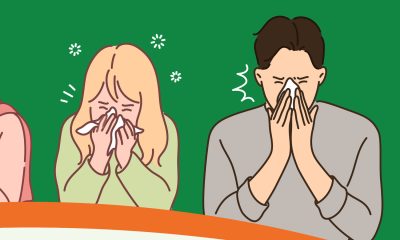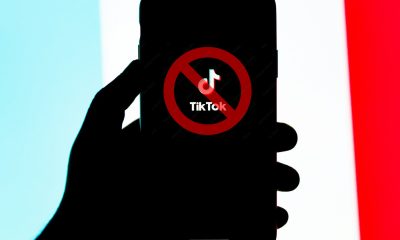By Mark Waghorn via SWNS
Ever struggled to put a name to a face? It could be because you are not getting enough sleep.
A study found participants' abilities improved after a good night's rest.
Recall went up dramatically when memories of newly learned individuals were reactivated while they were napping.
The key was uninterrupted deep sleep. It adds to evidence forty winks boosts brainpower.
via GIPHY
Failing to manage a regular seven hours has been linked to Alzheimer's.
Lead author Nathan Whitmore, a PhD candidate at Northwestern University in Illinois, said: "It's a new and exciting finding about sleep.
"It tells us the way information is reactivated during sleep to improve memory storage is linked with high-quality sleep."
In the study, volunteers learned 80 face-name associations.
Next, they slept while wearing EEG (electroencephalogram) skull caps that monitor brainwaves.
During deep or 'slow wave' sleep, in which new memories are cemented, 20 of the spoken names were presented softly over background music.
For those with recordings indicating disrupted sleep, it didn't help - and may even be detrimental.
But in peers whose shut eye was uninterrupted during the specific presentations they remembered over 1.5 more names, on average.
The results reported in NPJ: Science of Learning were described as "significant."
"For those who rarely forget a face, but struggle with names, the remedy for boosting learning may as near as your pillow,"Whitmore said.
The study is the first to document the effect reactivating memory during sleep has on face-name learning.
It involved 24 volunteers aged 18 to 31 who were asked to memorize two groups of 40 pupils from hypothetical Latin American and Japanese history classes.
When each face was shown again, they had to produce the name that went with it.
After the learning exercise, participants took a nap while the researchers carefully monitored brain activity using EEG measurements.
When they reached the deep sleep state, some of the names were softly played on a speaker with music that was associated with one of the classes.
On waking, they were retested on recognizing the faces and recalling the name that went with it.
The researchers say the finding on the relationship between sleep disruption and memory accuracy is noteworthy for several reasons.
"We already know some sleep disorders like apnea can impair memory,"Whitmore said.
"Our research suggests a potential explanation for this frequent sleep interruptions at night might be degrading memory."
Sleep apnea causes loud snoring. It is the most common sleep disorder - and a risk factor for dementia.
Sufferers have been shown to have impaired memory and executive function.
They are also more likely to develop chemical changes that are associated with Alzheimer's.
The lab is in the midst of a follow-up study to reactivate memories and disrupt sleep to shed light the relevant brain mechanisms.
Senior author Professor Ken Paller, also from Northwestern, said: "This new line of research will let us address many interesting questions - like whether sleep disruption is always harmful or whether it could be used to weaken unwanted memories.
"At any rate, we are increasingly finding good reasons to value high-quality sleep."
Alzheimer's and other forms of dementia affect around 920,000 people in the UK - a figure that will rise to 2 million by 2050.
With no cure in sight, there is an increasing focus on lifestyle changes that can be protective.

 Parenting1 week ago
Parenting1 week ago
 Lifestyle7 days ago
Lifestyle7 days ago
 Wildlife3 days ago
Wildlife3 days ago
 Good News4 days ago
Good News4 days ago
 Health4 days ago
Health4 days ago
 Environment1 week ago
Environment1 week ago
 Entertainment21 hours ago
Entertainment21 hours ago
 Work2 days ago
Work2 days ago




















